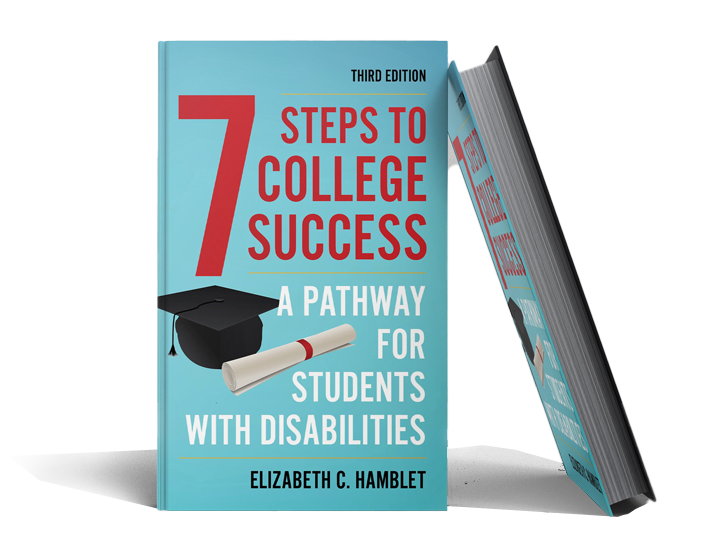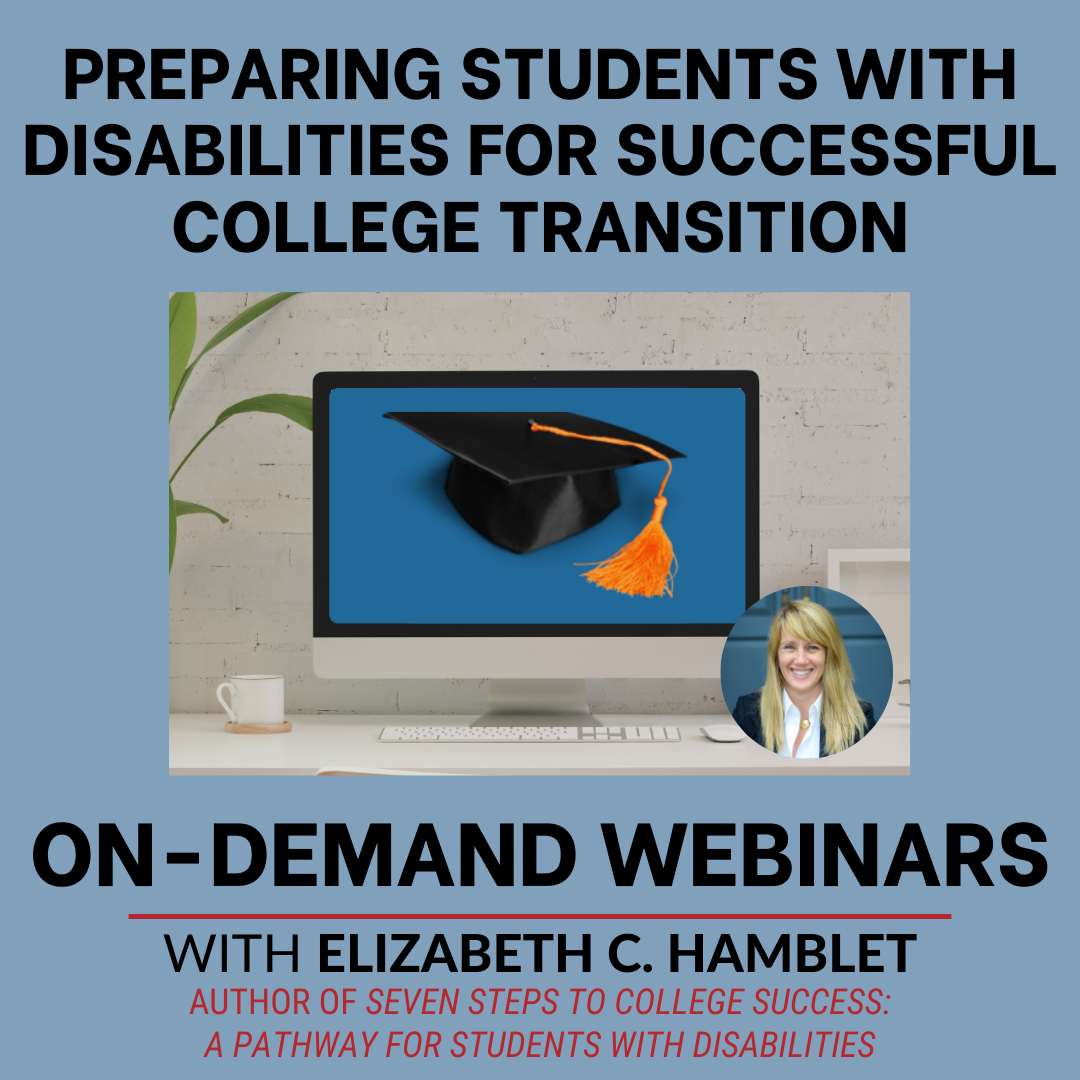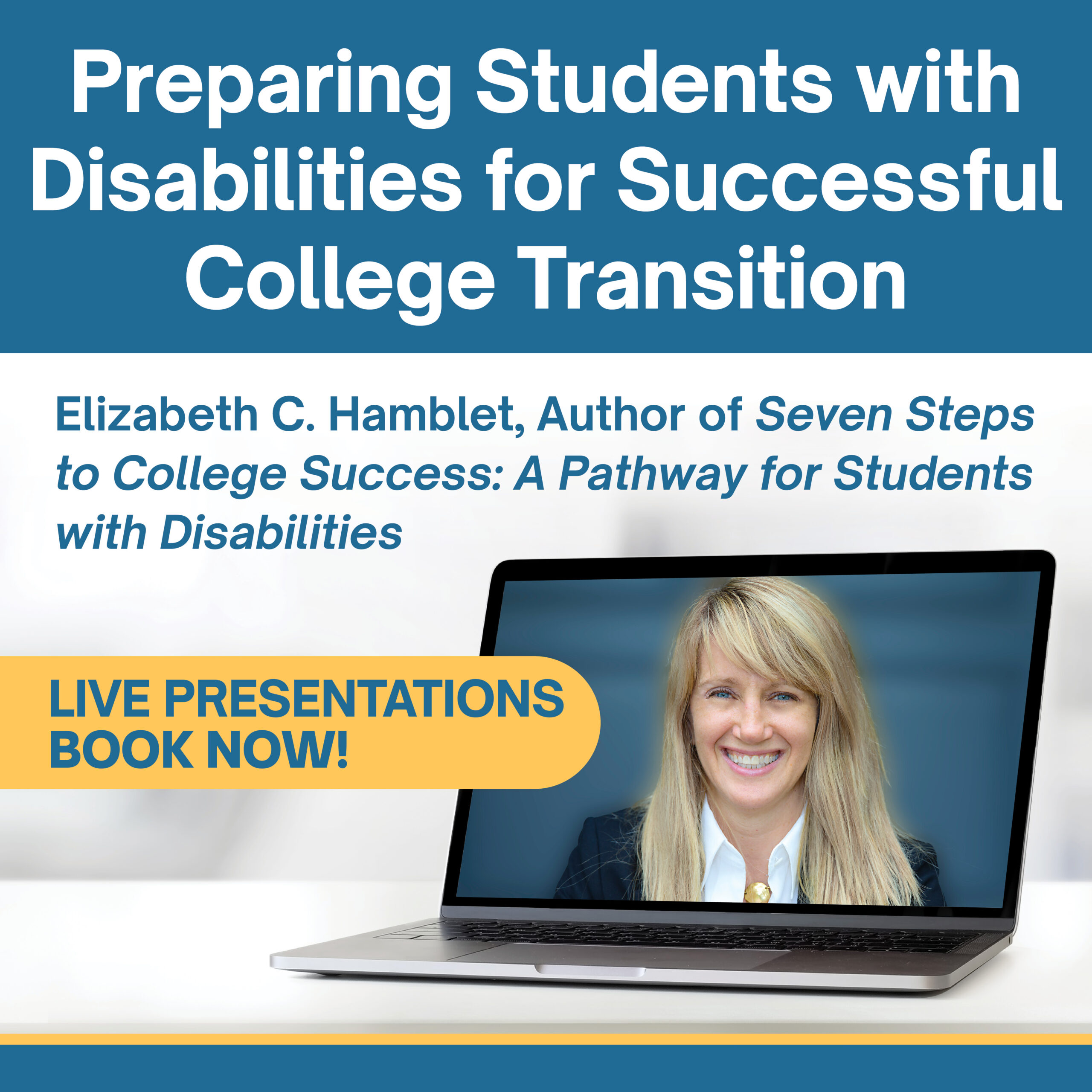Introduction
For students with autism, college life not only involves meeting academic demands, but also handling group living and other kinds of social situations, which may present unique challenges. But with the proper preparation, they can find success!
Jane Thierfeld Brown is director and co-founder of College Autism Spectrum (CAS) consulting group, and parent of a 31 year-old adult with autism. Lorraine Wolf was Director of Disability Services at Boston University and also a co-founder of CAS. Brown and Wolf are internationally-sought speakers and co-authors of The Parent’s Guide to College for Students on the Autism Spectrum.
When I interviewed them for my book, I asked them what families need to think about when preparing student for college. (See more from them in this post and in Step 5 of my book.)
What skills do students with autism need to have to be ready for college?
- arriving to class on time
- having belongings organized and ready
- classroom comportment – they know how to raise their hand and wait their turn
- resisting peer pressure
- understanding self-care
- making an appointment
- filling a prescription
- talking to a doctor
Everyone at college needs to do these things. And what I love about this list is that these could be written into an IEP as goals.
And students need to be able to go through the syllabus and get all of the assignments down in their calendar with the due dates. They need the ability to break down long-term assignments into interim deadlines. These are challenges many students without disabilities have, too. And some colleges do offer help with executive functioning skills. But it would make for a better transition if students learned these ahead of their arrival at college.
Academics are one quarter of students’ experience at college. Students need to be able to do the other three quarters to feel comfortable on campus.
What can families do to help prepare students with autism for successful college transition?
Are self care skills developed intact enough for them to live away from home? Or should we be looking at a commuter school? Can they manage transportation independently?
Are students ready for life on campus, or should the search focus on commuter schools, at least for now? Students can start in once place and transfer.
Brown: Start early!
How can parents and professionals assess students’ readiness for college?
Some students need to get a sense of their independent skills. A pre-college program where they live in the dorms can be helpful.
I also really encourage students to – in senior year of high school – take a college course. This will give them a sense of the differences in accommodations while they have support they’re used to at school and home. Also, students will see how accommodations work – that they have to start the process and what their responsibilities are (there aren’t resource or special education teachers at the college level who help with those kinds of things).
This will give families and schools a good a sense of what students need to work on.
It’s a great idea for high school students to talk to a student who’s already at college. We encourage high schools to invite graduates who’ve gone on to high school to come back and speak to students.
Would you like to share something encouraging with families?
Wolf: There’s a right college for everybody. And colleges are so much more informed than they used to be. They know the right questions to ask. They know what questions to ask and they can offer much more. I think there’s more understanding and empathy. There are more flyers coming from employers every day about job fairs where they are specifically looking to hire these individuals.
Read Brown & Wolf’s book, The Parent’s Guide to College for Students on the Autism Spectrum, to learn much more.




